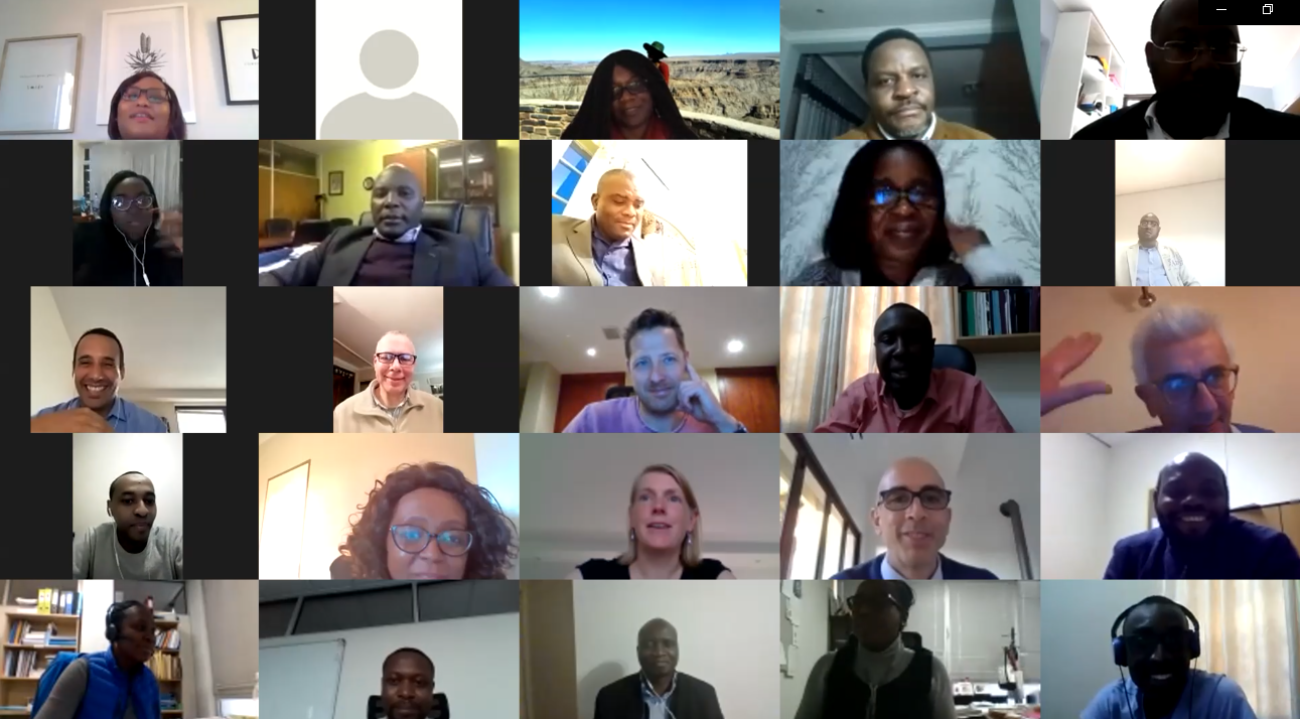Complying with social distancing guidelines, a large and diverse group of stakeholders met online to discuss at length and in depth the social and economic impact of the pandemic on Namibia. The meeting was attended by representatives of the Government, including from the Bank of Namibia (BoN), the Ministry of Finance (MoF), the National Planning Commission (NPC), and the National Statistics Agency (NSA). The UN Namibia was represented by a range of entities including the Resident Coordinator’s Office, ILO, UNDP, UNICEF, UNFPA, and WHO, as well as expert resource persons from the United Nations Economic Commission for Africa (UNECA), the United Nations Department of Economic and Social Affairs (UNDESA), the African Development Bank and the World Bank. Academia was represented by the University of Namibia (UNAM) and the Namibia University of Science and Technology (NUST), among other participants.
The ultimate purpose of this social and economic impact assessment is to support the Government of Namibia in its efforts to assess and implement policies and programmes related to recovery from the Covid-19 pandemic. The Government’s strategy will have to include fiscal, monetary, and health policymaking. Poverty and employment are some of the main issues to tackle, taking into consideration that the Covid-19 pandemic is causing vulnerable groups to fall into poverty.
In order for the assessment to be accurate, specific characteristics of Namibia will have to be evaluated. Some of them include the fact that the country is one of the most unequal in the world. Another important factor raised has to do with Namibian demographics and the implications and relationship they have with Covid-19. It is important to understand how different groups will be affected, and to commit to make recovery policies inclusive.
The group experts also agreed that policymaking needs to take into consideration social, economic, and health scenarios that reflect the uncertainty that the country is facing now and will continue to face in the future. Such scenarios need to include not only the size of the economic contraction, but also the duration of it, and the strength of the recovery in the coming years.
An assessment of current policies is essential. Regarding fiscal policy, its role needs to be defined, as well as the size of tax collection. Ideally, the recovery model will be broad and include climate change, and tourism, among other areas. However, one of the challenges identified has to do with data collection, as well as with data discrepancies and assumptions. If there is not current or previous information on certain indicators, it will be difficult to make comparisons and determine if there have been improvements, or if progress has been stalled, or if it has reversed. Data requires partnership and collaboration.
This comprehensive meeting laid the groundwork for future discussions, in which the aforementioned issues will continue to be addressed. The group reiterated its commitment to support Namibia as it builds back better and overcomes the Covid-19 pandemic.
Ms. Eunice Ajambo, Economist and Development Coordination Officer at UN Namibia, and the Focal Point of the VEGM noted:
This Socio-Economic Impact Assessment of COVID-19 in Namibia, comprises the UN framework for the immediate socio-economic response to COVID-19 and its related 5 Pillars, calling for the utilization of various analytical methods and tools for fast data collection and quick country assessments.
The 4th Pillar on Macroeconomic response and multilateral collaboration calls upon the UN System to --among others--provide analytical, advisory and technical assistance services, to help design an immediate crisis response in the economic and financial domain, and policies for a sustainable recovery. The UN System is commited to steping-up technical support to innovate around strengthening the evidence base for policy making, including in emergency response.









